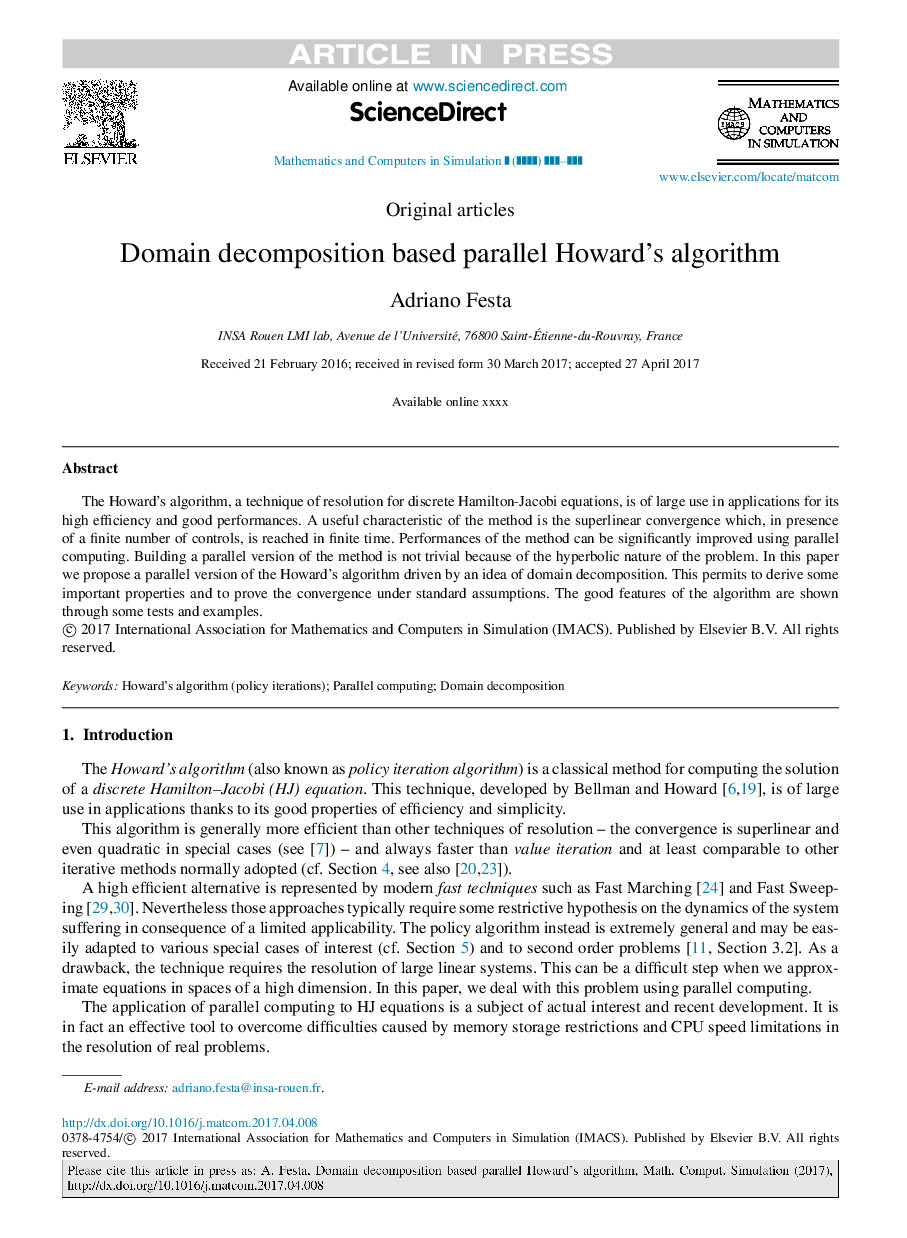| Article ID | Journal | Published Year | Pages | File Type |
|---|---|---|---|---|
| 7543192 | Mathematics and Computers in Simulation | 2018 | 19 Pages |
Abstract
The Howard's algorithm, a technique of resolution for discrete Hamilton-Jacobi equations, is of large use in applications for its high efficiency and good performances. A useful characteristic of the method is the superlinear convergence which, in presence of a finite number of controls, is reached in finite time. Performances of the method can be significantly improved using parallel computing. Building a parallel version of the method is not trivial because of the hyperbolic nature of the problem. In this paper we propose a parallel version of the Howard's algorithm driven by an idea of domain decomposition. This permits to derive some important properties and to prove the convergence under standard assumptions. The good features of the algorithm are shown through some tests and examples.
Related Topics
Physical Sciences and Engineering
Engineering
Control and Systems Engineering
Authors
Adriano Festa,
